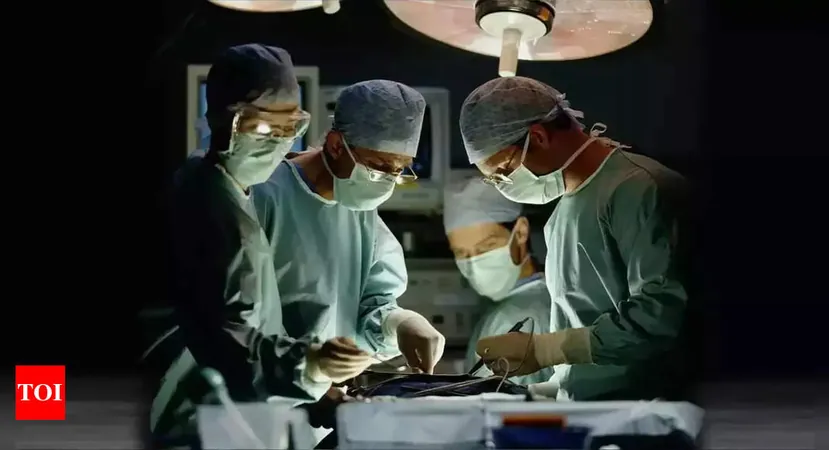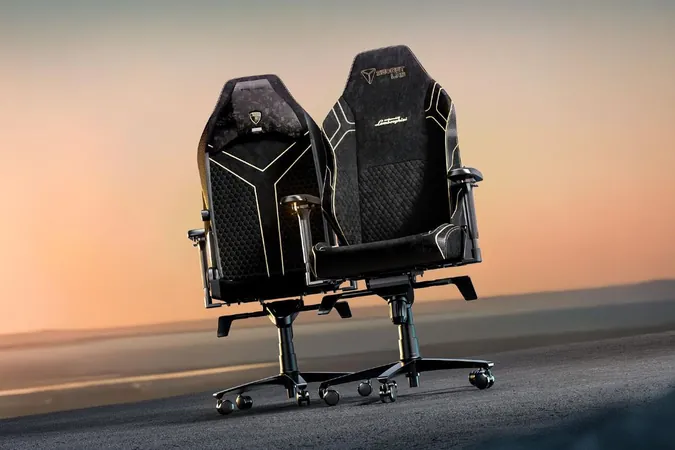
Groundbreaking Kidney Auto-Transplant Surgery Saves Life of 6-Year-Old Uzbek Boy from Wilms Tumour
2025-01-18
Author: Sarah
Introduction to the Case
In a remarkable medical feat, a private healthcare facility in New Delhi successfully performed a kidney auto-transplant on a 6-year-old Uzbek boy afflicted with bilateral Wilms tumour, a rare and challenging form of kidney cancer in children. This complex surgery was executed by the skilled Dr. Paresh Jain and his dedicated team at Fortis Escorts, located in Okhla.
Initial Diagnosis and Treatment
The young patient had previously undergone chemotherapy in Uzbekistan but was transferred to India after it proved ineffective. Upon arrival, health assessments demonstrated extensive involvement of tumours in both kidneys, with the left kidney particularly affected alongside swollen lymph nodes. The initial assessment led to a laparoscopic right partial nephrectomy, where surgeons removed the non-cancerous right kidney, as well as the enlarged lymph nodes, followed by a biopsy of the left kidney.
Surgical Procedures
Despite the initial surgery showing the right kidney to be cancer-free, the smaller tumour remaining in the left kidney warranted further action. The second surgery spanned eight hours and posed significant challenges due to fibrous tissue buildup resulting from earlier treatments. The surgical team managed to remove the left kidney while preserving vital blood vessels and urinary pathways, ultimately reimplanting the cancer-free kidney in the lower abdomen.
Post-Operative Recovery
Remarkably, the child recovered without complications, showcasing the effectiveness of this pioneering surgical intervention. Dr. Jain highlighted the enormity of this achievement, noting that only 16 similar cases have been recorded globally, with none previously documented in India. He emphasized that Wilms tumour primarily affects children ages 3-4 and presents significant risks if left untreated due to its potential for bilateral development.
Significance of the Procedure
One of the most significant advantages of this surgical approach was its success in eliminating the need for a maternal kidney donation, thus safeguarding the mother's health while avoiding the necessity for lifelong immunosuppressive medication often required after traditional transplant procedures. This not only minimizes health risks associated with immunosuppression but also alleviates the financial burden on the family.
Future Considerations
Dr. Jain pointed out that given the child's young age, he might require multiple kidney transplants throughout his life, but by preserving his original kidney function, the team has potentially reduced the number of future surgeries needed.
Conclusion
As news of this groundbreaking procedure spreads, it stands as a beacon of hope for families grappling with similar medical challenges, illustrating the strides being made in pediatric oncology and transplant surgery.


 Brasil (PT)
Brasil (PT)
 Canada (EN)
Canada (EN)
 Chile (ES)
Chile (ES)
 Česko (CS)
Česko (CS)
 대한민국 (KO)
대한민국 (KO)
 España (ES)
España (ES)
 France (FR)
France (FR)
 Hong Kong (EN)
Hong Kong (EN)
 Italia (IT)
Italia (IT)
 日本 (JA)
日本 (JA)
 Magyarország (HU)
Magyarország (HU)
 Norge (NO)
Norge (NO)
 Polska (PL)
Polska (PL)
 Schweiz (DE)
Schweiz (DE)
 Singapore (EN)
Singapore (EN)
 Sverige (SV)
Sverige (SV)
 Suomi (FI)
Suomi (FI)
 Türkiye (TR)
Türkiye (TR)
 الإمارات العربية المتحدة (AR)
الإمارات العربية المتحدة (AR)